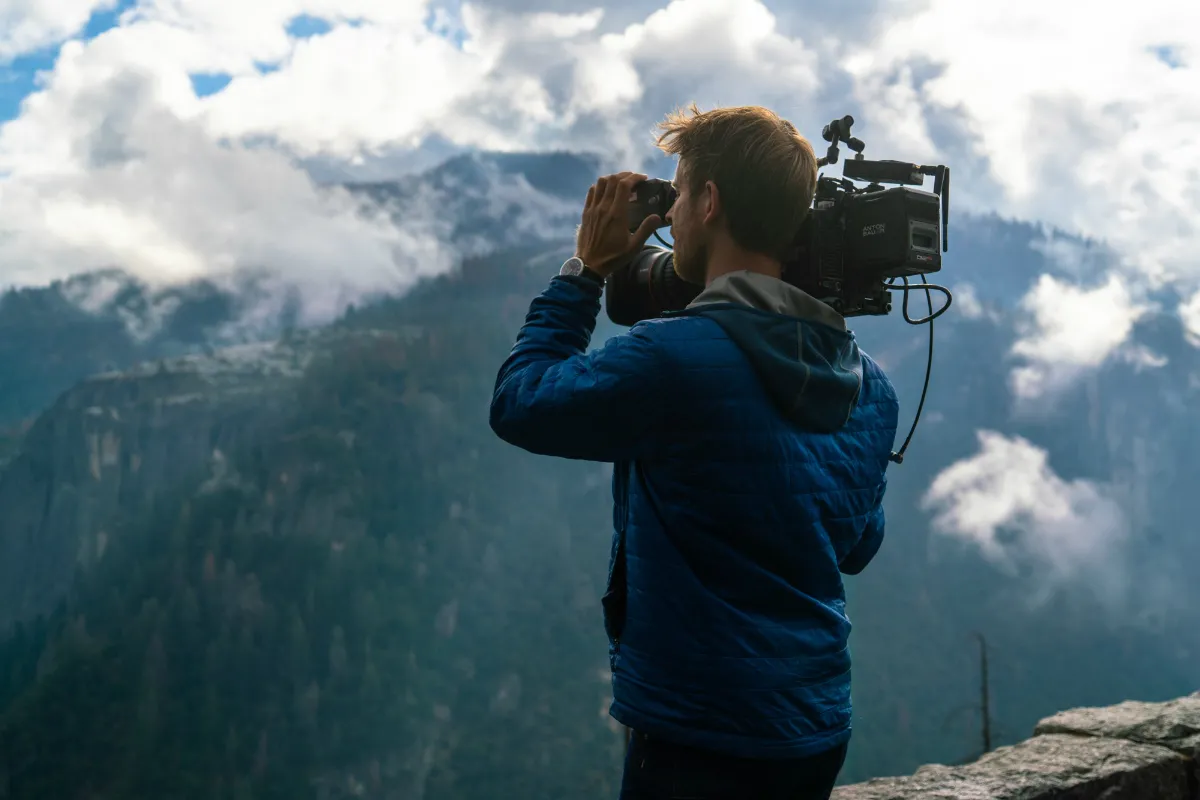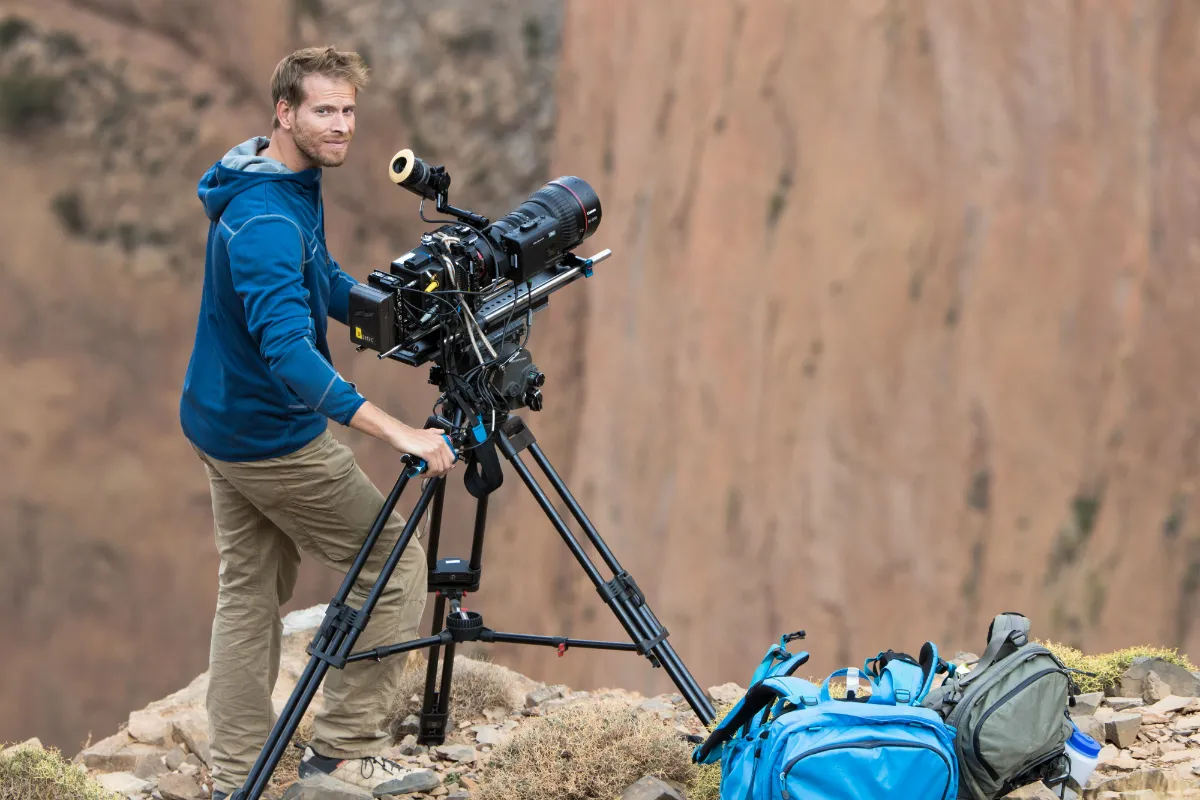Update - September 18, 2019: At the 71st Primetime Creative Arts Emmy Awards, Popkin won an Emmy for outstanding cinematography for a nonfiction program for his work on “Free Solo.”
Clair Popkin ’07 was working as a cinematographer on the Netflix series “Abstract: The Art of Design,” when he casually mentioned to the director that he had hurt his neck skydiving. Her response surprised him: “You might just be the right kind of crazy to work with us.”
One lunch meeting later, Popkin joined filmmakers Jimmy Chin and Elizabeth Chai Vasarhelyi and a team of rock climber-cum-cinematographers as director of photography for the Oscar-winning documentary “Free Solo.” The film follows rock climber Alex Honnold as he attempts to complete the first free solo ascent — that’s a climb with no ropes, no protective equipment — of El Capitan, a 3,000-foot, sheer granite wall in Yosemite National Park.
Popkin is no stranger to adventure sports — in addition to skydiving, some of his favorite downtime activities include rock climbing and scuba diving — but compared to the team of professional climbers and mountaineers working on “Free Solo,” he was an amateur athlete. While other team members shot Honnold’s monumental climb from preplanned positions on the wall, Popkin shot much of the rest: interviews with Honnold and others, drone shots, beauty shots, etc. But that doesn’t mean filming was a walk in the park. After shooting Honnold approach El Capitan and begin climbing, Popkin had to race to the top to film him reach the summit. With no road to get there, Popkin had to hike more than hour with 30-plus pounds of gear before ascending a fixed rope 1,000 feet up the wall, then trudge another hour to the top of El Cap.
“You don’t get a second chance when you’re shooting a film like that,” Popkin said. “Alex isn’t going to repeat anything. He’s not going to do a do-over.”
Shooting “Free Solo” was a marathon undertaking. Popkin and his team shot more than 700 hours of footage during the course of two years of filming, and traveled around the world, from Yosemite to Las Vegas to Morocco.

